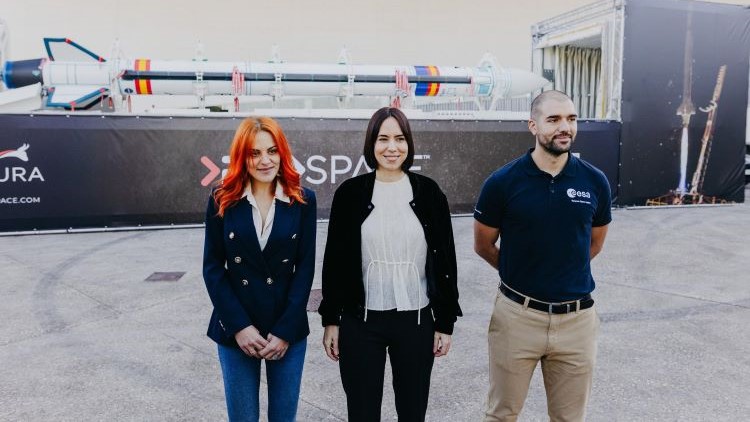Eduardo González
The acting Minister of Science and Innovation, Diana Morant, presented yesterday the Space Week, which is being held until November 10 in Seville in the framework of the Spanish Presidency of the Council of the EU and which includes the meeting of the Ministerial Council of the European Space Agency (ESA).
“The Government of Spain is making a qualitative leap in the space sector to increase our strategic autonomy in essential services,” said Morant during the event. Space Week annually brings together all the voices of Europe’s space community: space managers, businessmen, entrepreneurs, investors, researchers, technologists and social organizations. In total, 15 international space-related events, 11 high-level meetings and four social events of very different nature and scope will be held.
Space Week includes the European Space Agency (ESA) Ministerial Council meeting, the informal ministerial meeting on Space Competitiveness and a High-Level Dialogue between European Space Union ministers and representatives of the Community of Latin American and Caribbean States. All these events are also being held in Seville, European Space Capital in 2024.
During her speech, Morán recalled the Spanish Government’s implementation of the Aerospace PERTE, a strategic project that will mobilize more than 5,000 million euros in total and in which 90% of the public investment has already been executed.
She also assured that the Government’s action in this sector “is already translating into milestones” such as the recent launch of the Spanish rocket Miura 1, thanks to which Spain is already on the list of the ten countries in the world capable of designing, producing and launching space rockets; or the selection of two new Spanish astronauts in the European Space Agency (ESA), Pablo Álvarez and Sara García.
Morant also recalled that Spain has joined the Artemis program, a U.S.-sponsored space alliance that promotes collaboration between countries with the dual objective of returning to the Moon in order to develop a continuous presence on the surface of the satellite and to prepare the first manned flights to Mars. Spain’s adhesion was agreed last May 12 at the White House by the President of the Government, Pedro Sánchez, and the President of the United States, Joe Biden, and signed in Madrid, at the end of the same month, by Sánchez himself and the Administrator of the National Aeronautics and Space Administration (NASA), Bill Nelson.
Likewise, continued Morant, Spain is developing, together with Portugal, the Atlantic Constellation, formed by 16 small satellites that will help to improve the observation of the Earth, increasing the frequency of sampling and, therefore, the frequency with which we can obtain data of what is happening in our country to be able to fight, for example, against a fire or against phenomena such as the volcano of La Palma. The acting minister also recalled that Seville and Castellón have hosted the two new European headquarters of the European Space Agency’s business incubators.







